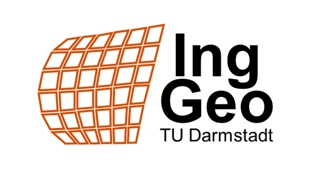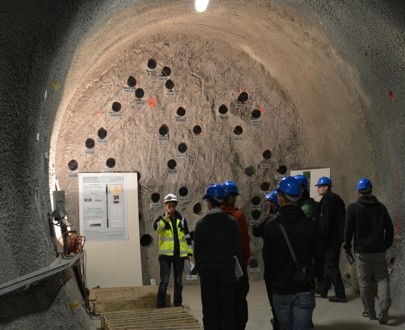
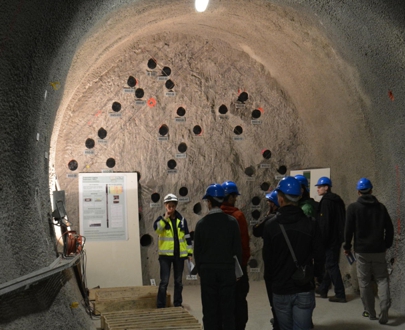
The spectrum of applications ranges from the planning and execution of geotechnical projects in building and traffic route construction to the development and use of underground storage facilities for raw materials, heat and waste. These tasks require not only knowledge of the classical and applied geosciences, but also interdisciplinary knowledge from the other natural sciences (chemistry, physics, mathematics) as well as the engineering sciences.
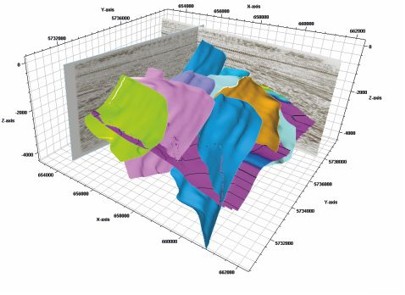
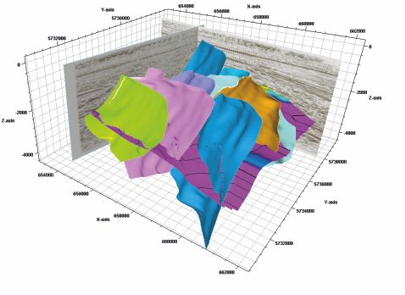
A special focus of the Engineering Geology section at TU Darmstadt is the geomechanical characterisation of reservoirs (“Reservoir Geomechanics”). For this purpose, rock mechanical and geophysical data are combined with numerical models and used to predict tectonic stresses and fracture networks in the deeper subsurface. The need for such forecasting tools is manifold and ranges from hydrocarbon reservoirs and storage facilities to repositories for radioactive waste.
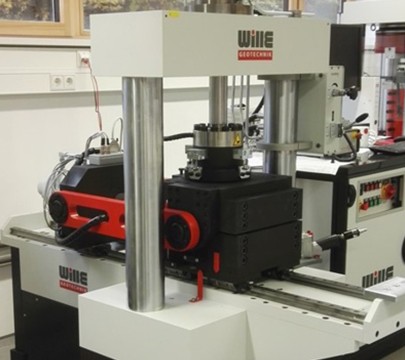
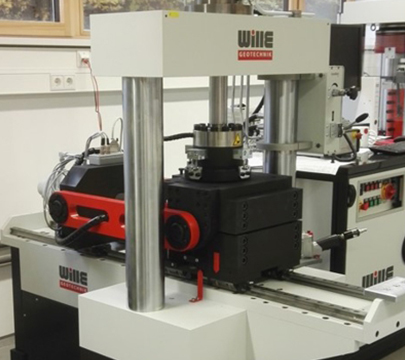
For the exploration of the subsurface, engineering geology uses a wide range of direct (e.g. boreholes and soundings) and indirect (e.g. geophysical) methods. Of particular interest are the structural composition of the subsurface and the determination of geomechanical and rock-physical parameters in laboratory and field tests. This information is then used to create numerical models based on the finite element method.
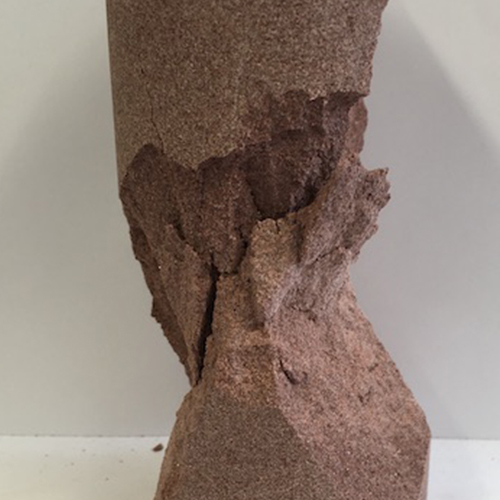
Our Equipment
A wide range of facilities for laboratory and field measurements as well as hardware and software for modelling is available for teaching and research in engineering geology.


